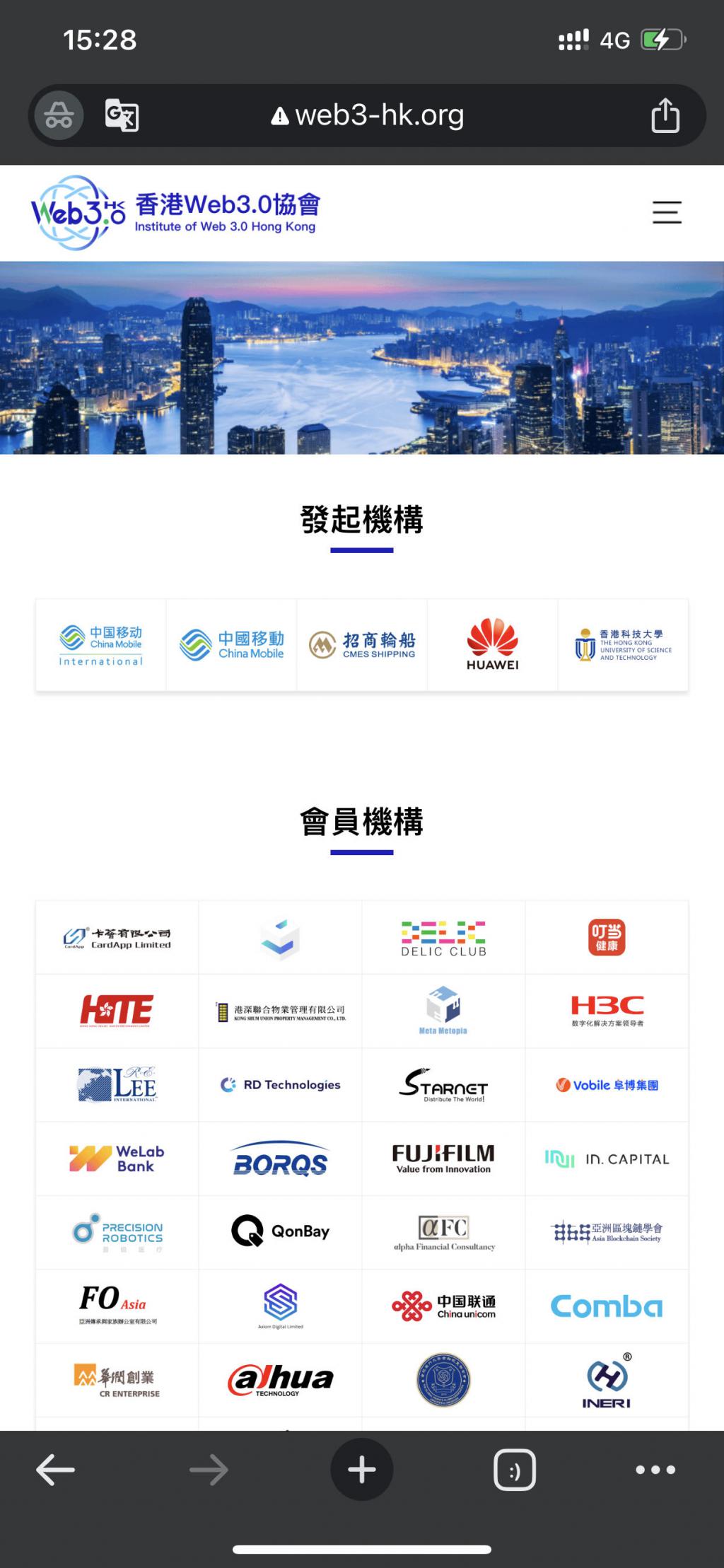web3.0 brings Hong Kong into focus again
Web3.0, also known as the decentralized web or the blockchain-powered web, has the potential to bring Hong Kong into focus again due to its unique political and economic situation. Hong Kong has a history of being a global financial hub and a gateway between China and the rest of the world. However, in recent years, there have been concerns about Hong Kong's autonomy, freedom of expression, and human rights, which have led to increased scrutiny from the international community.
Web3.0, with its decentralized and censorship-resistant nature, could provide new opportunities for Hong Kongers to exercise their freedom of expression and protect their digital rights. The use of blockchain technology could enable decentralized social media platforms, where information can be shared securely and without the fear of censorship. This could empower Hong Kongers to express their opinions, share news and information, and organize social movements in a way that is not easily controlled or censored by authorities.
Furthermore, blockchain-based systems could also provide a more transparent and secure way of managing digital assets, which could be appealing to businesses and investors in Hong Kong. For example, blockchain can be used for supply chain management, intellectual property rights, and digital identity verification, which can help enhance trust and accountability in business transactions. This could attract investment and promote economic growth in Hong Kong, which has traditionally relied on its status as a financial center.
However, it's important to note that the implementation of Web3.0 in Hong Kong may also face challenges, as it could be subject to government regulations and restrictions. The Chinese government, which has jurisdiction over Hong Kong, has shown a tendency to regulate and control digital technologies, including blockchain and cryptocurrencies. Therefore, the future impact of Web3.0 in Hong Kong will likely depend on the evolving political and regulatory landscape in the region.
Overall, Web3.0 has the potential to bring Hong Kong into focus again by providing new opportunities for freedom of expression, digital rights, and economic growth. However, its implementation may also face challenges from government regulations and restrictions, and the outcome will depend on the evolving dynamics in Hong Kong's political and economic landscape.

The news of the establishment of the Hong Kong Web3.0 Association swept the industry
The establishment of the Hong Kong Web3.0 Association would likely generate significant interest and attention within the industry. As Web3.0, the decentralized web powered by blockchain technology, continues to gain traction globally, the creation of a dedicated association in Hong Kong would signal the region's commitment to embracing this emerging technology.
The Hong Kong Web3.0 Association could potentially play a pivotal role in driving the adoption of Web3.0 technologies in Hong Kong and promoting their benefits. This could include organizing events, workshops, and educational initiatives to raise awareness and educate businesses, investors, and the general public about the potential of Web3.0. The association could also serve as a platform for networking, collaboration, and knowledge sharing among stakeholders in the Web3.0 ecosystem, including blockchain developers, startups, investors, and regulators.
The news of the association's establishment could also spark discussions and debates around the implications of Web3.0 for Hong Kong's political, economic, and social landscape. This could include conversations about the potential impact of decentralized technologies on issues such as data privacy, governance, and financial regulation. Additionally, the establishment of the association could be seen as a positive development for Hong Kong, as it could position the region as a forward-thinking and innovative hub for Web3.0 technologies in Asia.
However, it's worth noting that the establishment of the Hong Kong Web3.0 Association may also face challenges and regulatory considerations. Hong Kong's political environment and its relationship with mainland China could impact the association's operations and activities. The association would need to navigate potential regulatory frameworks and compliance requirements to ensure its operations are in line with local laws and regulations.
Overall, the establishment of the Hong Kong Web3.0 Association would likely generate significant attention and interest within the industry, and could potentially play a significant role in promoting the adoption of Web3.0 technologies in Hong Kong. However, it would also need to navigate potential challenges and regulatory considerations to ensure its success in fostering the growth of the Web3.0 ecosystem in the region.
What should Hong Kong pay attention to and prevent in web3.0?
Privacy and Security: With Web3.0 being decentralized and built on blockchain technology, it is important for Hong Kong to ensure that user privacy and security are adequately protected. This includes implementing robust data protection measures, encryption techniques, and secure authentication methods to prevent unauthorized access and data breaches. Hong Kong should also consider the potential risks and challenges associated with smart contracts, decentralized applications (dApps), and other Web3.0 technologies, and take necessary measures to mitigate them.
Regulatory Framework: Hong Kong should establish a clear and comprehensive regulatory framework for Web3.0 technologies. This includes regulations related to cryptocurrencies, Initial Coin Offerings (ICOs), and other blockchain-based activities to ensure compliance with local laws and regulations. The regulatory framework should strike a balance between fostering innovation and protecting investors and consumers, while also addressing potential risks such as fraud, money laundering, and illegal activities.

In the era of Web 3.0, Hong Kong should pay attention to the following aspects to prevent potential problems:
Governance and Decentralization: Web3.0 technologies are designed to be decentralized, which can have implications for governance and decision-making. Hong Kong should carefully consider the governance models of blockchain networks and dApps to ensure that they are transparent, inclusive, and accountable. This includes defining roles and responsibilities, establishing dispute resolution mechanisms, and addressing potential challenges related to concentration of power and governance disputes.
Inclusivity and Accessibility: Hong Kong should strive to ensure that Web3.0 technologies are inclusive and accessible to all, regardless of socio-economic status, gender, or other factors. This includes promoting digital literacy, providing equal opportunities for participation, and addressing potential issues related to the digital divide. Hong Kong should also ensure that the benefits of Web3.0 technologies are not limited to a few privileged groups, but are distributed across the broader community.
Interoperability and Standards: Web3.0 is a rapidly evolving field with various blockchain networks, protocols, and standards. Hong Kong should promote interoperability among different Web3.0 technologies to enable seamless communication and collaboration. This includes adopting common standards, protocols, and interfaces to ensure compatibility and interoperability among different blockchain networks and dApps. Hong Kong should also actively participate in global efforts to establish industry standards and best practices for Web3.0 technologies.
Education and Awareness: Hong Kong should prioritize education and awareness about Web3.0 technologies among its citizens, businesses, and government agencies. This includes providing training programs, workshops, and resources to promote understanding of the benefits, risks, and implications of Web3.0 technologies. Hong Kong should also engage in public outreach and awareness campaigns to ensure that the general public is well-informed about the potential of Web3.0 and can make informed decisions.
Collaboration and Partnerships: Web3.0 is a rapidly evolving field that requires collaboration and partnerships among different stakeholders, including businesses, academia, government agencies, and communities. Hong Kong should foster a collaborative ecosystem by promoting partnerships, innovation clusters, and research and development initiatives related to Web3.0 technologies. This includes creating platforms for knowledge sharing, networking, and collaboration among different stakeholders to drive the growth and adoption of Web3.0 in Hong Kong.
By paying attention to these aspects and taking proactive measures, Hong Kong can prevent potential problems and effectively harness the opportunities presented by Web3.0 technologies, while ensuring that they are implemented in a responsible, inclusive, and compliant manner.